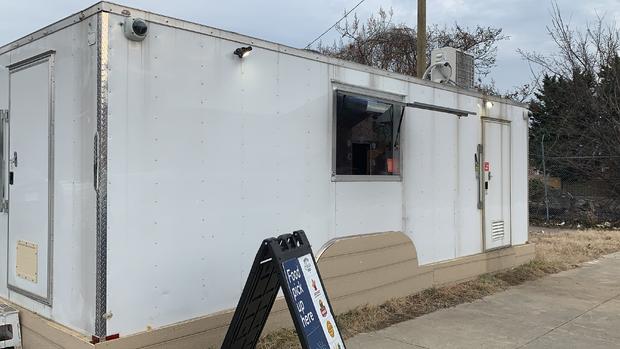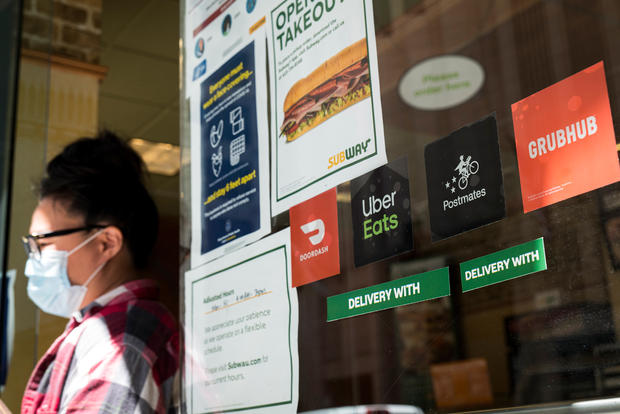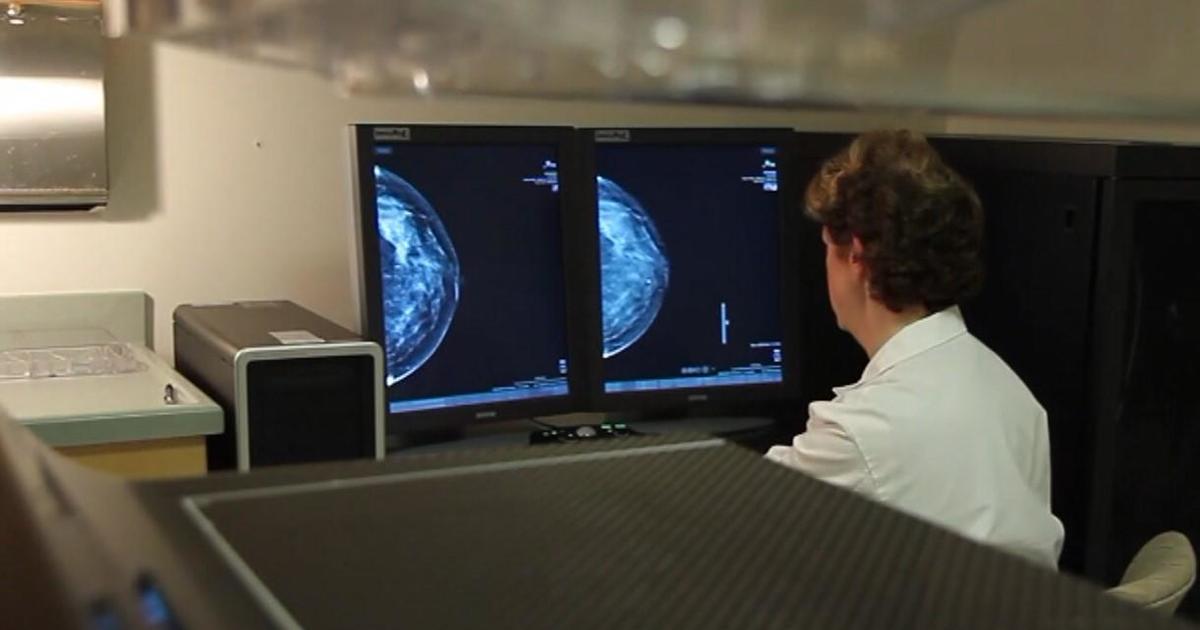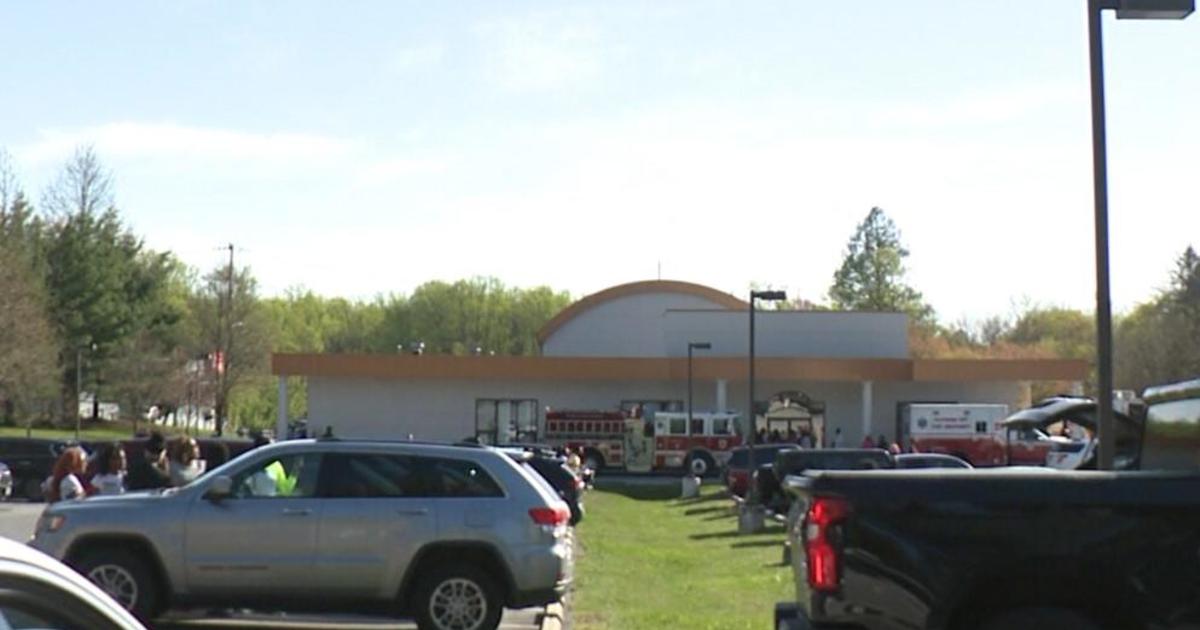'Society Is Very Ready For This': 'Ghost Kitchens' With No Physical Footprint Grow In Popularity Amid COVID-19 Pandemic
BALTIMORE (WJZ) -- From a small kitchen near downtown Baltimore, workers prepare chicken sandwiches, chicken fingers and waffle fries for hungry customers of one of the city's newest dining establishments.
Fuku opened two weeks ago in the city, but diners won't be able to stop by and grab a bite to eat in person with friends even when the COVID-19 pandemic ends.
That's because, unlike most restaurants, Fuku doesn't have a traditional brick-and-mortar presence. Instead, it's one of a growing number of ghost kitchens to spring up in recent years.
Ghost kitchens are not a new concept, but the COVID-19 pandemic has forced restaurant owners to think outside the box.
"The ghost kitchen model, the way we know it, the way we experienced it in 2020, that is kind of new," said Hung-bin Ding, an associate professor of management at Loyola University Maryland.
With dining rooms closed for parts of the year, food delivery has become crucial for both new and established restaurants alike, he said. That has opened the door for ghost kitchens, which eschew the brick-and-mortar presence and the overhead that comes along with it, to thrive.
"We are used to buying and ordering things online. Now if this pandemic happened 15 years ago, it would be a very different experience," Ding said. "Ghost kitchens would probably still be popular, but the timing today, the society is very ready for this, the infrastructure is there."
Ghost kitchens can crop up within existing restaurants, leasing space within their walls, or in other areas that traditionally would not be seen as typical locations for restaurants.
Fuku partnered with REEF Neighborhood Kitchens, which has more experience on the real estate side of the equation, to quickly deploy semi-portable "vessels" that have everything needed to run the business locally, Alex Munoz-Suarez, one of Fuku's owners, said.
RELATED COVERAGE:
- 'Ghost Kitchens' Popping Up All Over New York City
- 'Ghost Kitchen' Business Model Becoming More Popular Due To Food Delivery Apps
- 'Ghost Kitchens' Popping Up Across South Florida To Get Your Food Fast
For Fuku, which started a pilot program in New York City and Miami and has since expanded to other cities like Philadelphia, Washington, D.C., and Baltimore, those hurdles mean it would have taken years to reach Charm City.
"Over a four- to five-month period, we've been able to expand the Fuku brand to five cities, 12 vessels with little to no (capital expenditures) and during a pandemic," he said. "If you would have looked at the older sort of brick-and-mortar, more traditional way of expanding a food and beverage brand, it would have taken us years to get my real estate director down to Baltimore, understand the market, figure out what the right place is to set up a Fuku location, negotiate a lease, invest money in that lease, the training that it takes, all of that takes months if not a year to develop."
Ding said the model "follows the lean startup idea very, very well."
"The key idea is you stretch your money, right? So when you're a startup, you don't have a whole lot of money to spend, then you try to stretch your money so that you can utilize to the maximum level of your limited resource," he said.
It also provides more location flexibility. As the pandemic began and office occupancy in New York City and elsewhere plunged, people stayed home in Brooklyn, Queens and suburbs rather than heading into Manhattan.
"That's where people are now working from and eating out of and near that vicinity, so not dissimilar to that thinking, REEF has sort of positioned a lot of these vessels to look after where those markets exist and been able to drop these vessels throughout America where the population density is currently most robust."
One drawback is ghost kitchens can end up relying heavily on third-party delivery platforms like GrubHub and Doordash.
"It has a very close relationship with those third-party apps or third-party platforms," Ding said. "We have also heard that the third party sometimes is taking advantage of the ghost kitchen restauranteurs… it becomes kind of a strong distributor versus a weak supplier kind of relationship. It does happen, not just in ghost kitchens but everywhere in virtually every industry."
For Fuku, that means it has less control and interaction with its customers in the event an order is wrong or a customer wants to give other feedback.
Concerns over the high fees delivery platforms can charge restaurants led the Baltimore City Council last month to cap those fees at 15% amid the pandemic.
READ MORE: Baltimore City Council Passes Legislation Limiting App Delivery Fees
Ding said while those platforms have a lot of bargaining power, the market is moving quickly and other changes, like a bigger player jumping into the game, could make a difference.
The market, he said, is big enough for new ideas and new platforms.
As for more traditional restaurants, he said the new model is both good news and bad news.
"The good news is the brick-and-mortar restaurants, they are sort of already taking advantage of the ghost kitchen model by using the ghost kitchen model as sort of an experimental ground for experimental menus, so it's like a secondary brand," he said.
On the downside, societal changes even once the pandemic ends could make people less likely to want to dine in person.
Even once the pandemic ends, Munoz-Suarez said ghost kitchens will remain.
"It was something that pre-COVID we had dedicated time and energy and resources to, and believe that for sure post-COVID it will continue to be an area of focus for us," he said.
Ding agrees.
"Five years later, we are probably going to see, probably going to get used to a mix of ghost kitchen plus brick-and-mortar kitchen models."
This story was originally published on February 12, 2021.
Get alerts from WJZ first! Follow WJZ on Facebook and download the app.





